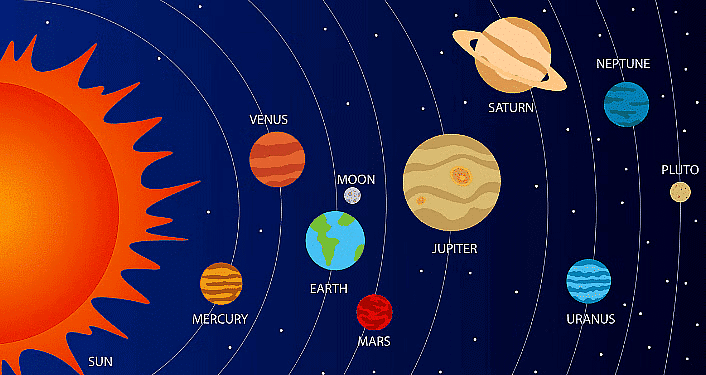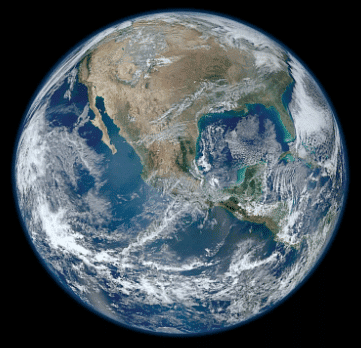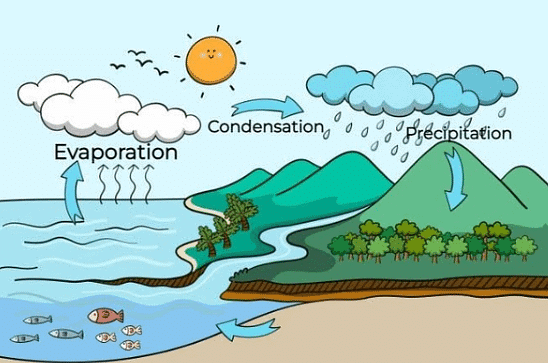The Earth-Our World - 2 Class 5 Worksheet SST
 Q1: Fill in the Blanks
Q1: Fill in the Blanks
(i) The Earth is the _____ planet from the Sun in our solar system.
(ii) The Earth has three main layers: the _______, the mantle, and the core.
(iii) The imaginary line that runs from the North Pole to the South Pole is called the _______.
(iv) The four main directions are ______, south, east, and west.
(v) The study of the Earth's physical features, climate, and resources is called _______.
(vi) The largest body of water on Earth is the _______ Ocean.
(vii) The process of water turning into vapor and rising into the air is called _______.
(viii) The process of water vapor turning back into liquid water is called _______.
(ix) The outermost layer of the Earth is called the _______.
(x) The natural home or environment of a plant, animal, or organism is its _______.
Q2: Multiple Choice Questions (MCQs)
(i) Which is the smallest planet in our solar system?
(a) Earth
(b) Venus
(c) Mercury
(d) Mars
(ii) Which gas do plants use to make their own food?
(a) Oxygen
(b) Nitrogen
(c) Carbon Dioxide
(d) Hydrogen
(iii) What causes day and night on Earth?
(a) The rotation of the Moon
(b) The rotation of the Sun
(c) The rotation of the Earth
(d) The movement of the stars
(iv) What is the Earth's largest continent?
(a) Africa
(b) Europe
(c) Asia
(d) North America
(v) What is the process by which plants release water vapor into the air?
(a) Transpiration
(b) Precipitation
(c) Condensation
(d) Evaporation
Q2: True and False
(i) The Earth is the only planet in our solar system that supports life.
(ii) The equator is an imaginary line that runs from the North Pole to the South Pole.
(iii) The crust is the innermost layer of the Earth.
(iv) The Pacific Ocean is the smallest ocean on Earth.
(v) Rocks can change from one form to another through processes like erosion and weathering.
Q3: Match the Following
(i) Weathering and Erosion → (a) The study of Earth's physical features
(ii) Geography → (b) Process of soil and rocks breaking down
(iii) Atmosphere → (c) Outermost layer of Earth
(iv) Crust → (d) Mixture of gases around Earth
(v) Evaporation → (e) Transformation of water into vapor

Q4: Short Answer Questions
(i) Explain how the Earth's rotation causes day and night.
(ii) Describe the water cycle and its different stages.
(iii) What is the importance of the equator in terms of climate and geography?
(iv) How does erosion change the Earth's surface? Provide an example.
(v) Why is it important for us to conserve natural resources?
The solutions of the worksheet "The Earth-Our World - 2"
|
33 videos|376 docs|50 tests
|
FAQs on The Earth-Our World - 2 Class 5 Worksheet SST
| 1. What are the main layers of the Earth? |  |
| 2. How do tectonic plates affect the Earth? |  |
| 3. Why is the Earth's atmosphere important? |  |
| 4. What are natural resources, and why are they important? |  |
| 5. How does human activity impact the Earth? |  |

















